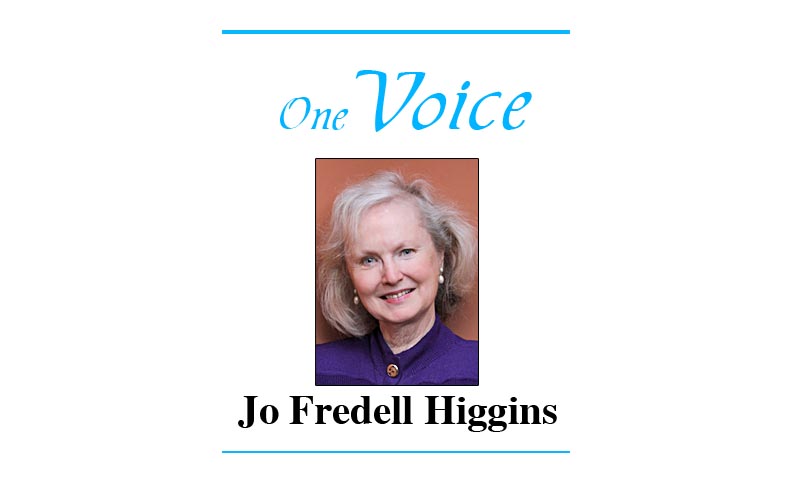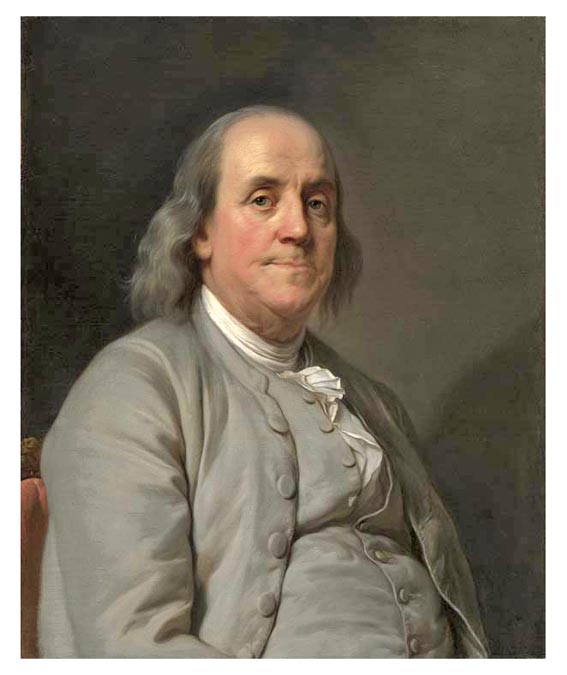
Ben Franklin was a Founding Father and in his 84-year old life, America’s best scientist, inventor, diplomat, writer, and business strategist. He was the only man who shaped all the founding documents of the United States which were the Albany Plan of Union, the Declaration of Independence, the treaty of alliance with France, the peace treaty with England, and the Constitution. A remarkable intellect, Franklin began as a leather-aproned shopkeeper who later dined with kings.
I came across Walter Isaacson’s “Benjamin Franklin An American Life” written in 2003 and found it fascinating. I had written an article for The Voice in July 2018 on this outstanding American, but thought there was so much more to tell, that this is part two for your reading pleasure.

A fair wind arose Wednesday, Sept. 25, 1723 when a 17-year old Franklin set sail from Boston for New York. As a young printer’s apprentice, he used his food allowance to buy books. His most notable trait was his personal magnetism. When he could not find work in New York, he went to Philadelphia, much of it by walking. He arrived at Market Street wharf with a Dutch dollar and a shilling in copper. He gave away two of the three puffy bread rolls he bought to a mother and child he met on his journey. “A man is sometimes more generous when he has little money than when he has plenty,” he later wrote.
In November 1724 he sailed for London. Expecting to receive letters of credit from governor Keith, Franklin would learn the flighty Pennsylvania governor had sent none. For Franklin, this was an insight into human foibles. “He wished to please everybody,” Franklin said of Keith, “and having little to give, he gave expectations.”
Franklin made a deal to borrow books from a London neighborhood bookseller as he worked a year at Palmer’s printing house. Then he took a better paying position at a larger printing house for John Watt. Franklin gave value to temperance and frugality above all. He valued truth in every instance, applying himself with industry and resolving to speak ill of no man whatever.
He had been fascinated by swimming even as a young boy. He had invented some paddles and flippers to propel himself across Boston Harbor and studied one of the first books on the subject, The Art of Swimming, written in 1696 by a Frenchman Melchisedec Thevenot. He taught friends to swim during boat trips on the Thames in London.
In July 1726 he and Mr. Dunham, a Quaker merchant, returned to Philadelphia. Dunham offered to pay Franklin’s passage if he would agree to sign on as his clerk at 50 pounds a year. To perfect the art of becoming a reliable person, Franklin wrote “Plan for Future Conduct” during the 11-week voyage back to Philadelphia.
Added to his list of virtues that would help him succeed in this world and exalt his soul for the hereafter, Franklin listed industry, sincerity, justice, moderation, cleanliness, tranquility, and chastity to his self-improvement plans. “I was surprised to find myself so much fuller of faults than I had imagined,” he dryly noted.
His Poor Richard’s Almanack would list maxims that many of us know today. Haste makes waste. When the well is dry, we know the worth of water. Eat to live not live to eat. There is a time to wink as to see. Half the truth is often a great lie. God helps them that help themselves. A penny saved is twopence clear. This publication sold 10,000 copies a year and made Franklin a wealthy man. Within 40 years, it was reprinted in 145 editions and seven languages. It has now gone through more than 1,300 editions.
The Library Company of Philadelphia was incorporated in 1731 when Franklin was 27. Franklin wrote the motto “To pour forth benefits for the common good is divine.” Most of the books were imported from London.
Benjamin Franklin’s intellectual curiosity was limitless. He studied dolphins, the Gulf Stream, meteorology, the earth’s magnetism, electricity, and refrigeration. He raised money to open the first nonsectarian college in America which became known as the University of Pennsylvania in 1791. After that he began raising money for a hospital. He served as assemblyman, Indian diplomat, and postmaster.
B. Franklin, printer, died April 17, 1790 at 11 p.m. holding the hand of his grandson Benny Franklin Bache, who would later die of yellow fever at age 29.

